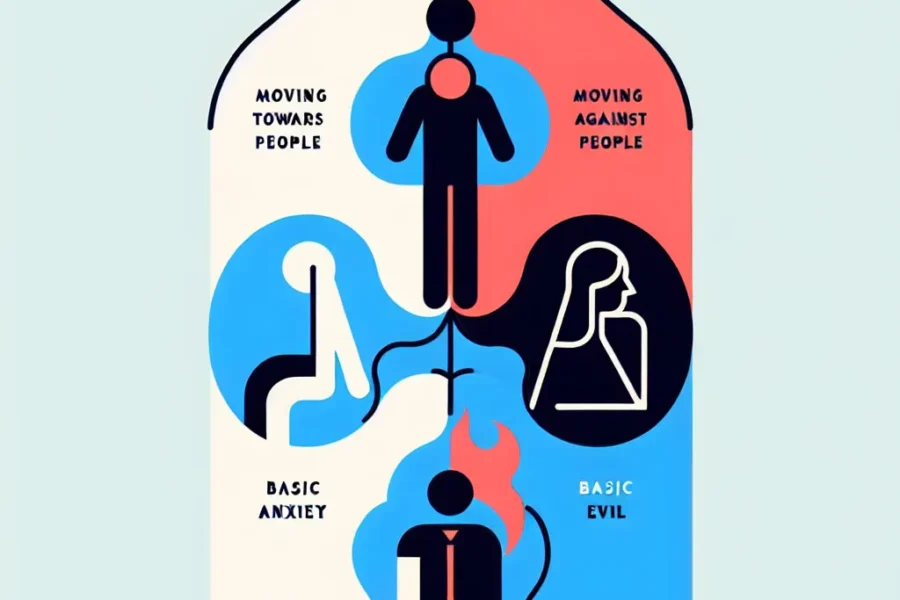B.F. Skinner’s Experimental Approach to Behavior
When it comes to understanding human behavior, few names in the realm of psychology loom as large as Burrhus Frederic Skinner. Known as B.F. Skinner, this illustrious psychologist paved the way for a better comprehension of human action through his revolutionary experimental approach. His work in behaviorism, a school of psychology that focuses on observable behaviors rather than internal thoughts and feelings, has had a lasting impact not only in psychology but also across a myriad of fields such as education, business, and even animal training.
In the heart of Skinner’s experimental methodology was the Skinner box, or operant conditioning chamber. With this device, Skinner could meticulously observe and control the conditions under which behaviors were learned and maintained. The cornerstone of his work, operant conditioning, posits that behavior is shaped and maintained by its consequences. Essentially, behaviors that are followed by positive outcomes tend to be repeated, while those that result in negative outcomes are likely to be suppressed.
To delve deeper into Skinner’s repertoire, one must understand the difference between two key concepts: reinforcement and punishment. Reinforcement refers to any consequence that increases the likelihood of a behavior recurring, while punishment refers to any consequence that decreases the likelihood of a behavior recurring. Skinner further divided reinforcement into two types—positive reinforcement, where a behavior leads to a desirable consequence such as a reward, and negative reinforcement, where a behavior results in the removal of an unpleasant stimulus.
One of his famous experiments involved training pigeons to peck at a disk by rewarding them with food pellets. The precision of the Skinner box allowed him to present these rewards at consistent intervals, a process known as scheduled reinforcement. Through this, Skinner identified several reinforcement schedules, among them fixed-ratio, variable-ratio, fixed-interval, and variable-interval schedules, each with distinct effects on behavior. For example, a fixed-ratio schedule might reward a pigeon after every tenth peck, while a variable-ratio schedule would reward after an unpredictable number of pecks. The latter schedule tends to produce more robust and persistent behaviors, a phenomenon which is evident in the mechanisms of gambling and slot machines.
Beyond the lab, Skinner’s ideas have proved influential in various aspects of everyday life. In education, the principles of behaviorism have guided the construction of teaching machines and educational software, which present information and reward students in a structured manner. The applications of Skinner’s experimental approach are also evident in the corporate world, where performance incentives are strategically used to shape employee behavior. In the area of mental health, behavior modification programs have been developed to help individuals adopt healthier habits or overcome undesirable behaviors.
Yet, Skinner’s influence extends even into pop culture. Parents may apply his techniques in the form of praise for good behavior, which is essentially a form of positive reinforcement. Reality television shows that revolve around behavior change or skill acquisition often adopt principles akin to Skinner’s operant conditioning, albeit unconsciously.
While Skinner’s contributions to understanding behavior are undeniable, they have not been without controversy. Critics argue that by focusing solely on the observable aspects of behavior, Skinner’s approach neglects the importance of internal mental states and emotions. However, proponents maintain that the practical applications of Skinner’s research are evidence of its value, irrespective of whether all aspects of the human experience are accounted for.
In the realm of animal training, Skinner’s work has motivated a shift away from aversive training techniques towards more humane, reward-based methods. Trainers now commonly use clickers, a form of conditioned reinforcer, to shape animal behavior in a way that is both effective and reduces stress for the animals involved. The use of positive reinforcement has revolutionized the way we interact with and train animals, leading to more positive relationships between humans and their non-human companions.
As technology advances, Skinner’s experimental approach to behavior continues to find new applications. The development of artificial intelligence and machine learning algorithms often draws upon principles of behaviorism, where reinforcement learning models enable AI systems to learn from consequences in a manner not dissimilar to Skinner’s pigeons.
Moreover, the rise of gamification in apps and software is a testament to the enduring legacy of Skinner’s work. Designers harness the power of rewards to influence user behavior, ensuring engagement and retention. Whether it’s a fitness app that rewards users for meeting their exercise goals or a language learning app that offers badges and points for completing lessons, the fingerprints of operant conditioning are all over the digital world.
Coming full circle to the classroom, Skinner’s ideas are also reshaping modern educational approaches. Distance learning and online platforms often integrate scheduled reinforcements to keep students engaged and motivated, drawing directly from the principles that Skinner outlined decades ago.
In summary, B.F. Skinner’s experimental approach to behavior has had a profound and lasting impact that extends far beyond the confines of psychology. His meticulous and innovative work in observing and controlling the conditions of behavior has illuminated the powerful effects of reinforcement and punishment on learning and behavior change. His legacy is evident in the broad applicability of his concepts to various fields—a testament to the universality of his experimental approach and its potential to continue influencing how we understand and shape human behavior for years to come.
In conclusion, B.F. Skinner’s body of work remains pivotal in our quest to decipher the complexities of behavior. Through his experimental approach, we’ve gained valuable insights into the mechanics of learning and the power of consequences in shaping actions, which continue to influence contemporary thought and practice. Whether employed in educational settings, corporate environments, mental health strategies, animal training, or in the nuanced algorithms driving technology forward, Skinner’s contributions provide powerful tools for understanding and influencing the world around us. The enduring relevance of his ideas ensures that B.F. Skinner’s name will forever be synonymous with the quest to understand and mold behavior across the spectrum of human and animal life.



Leave a Comment